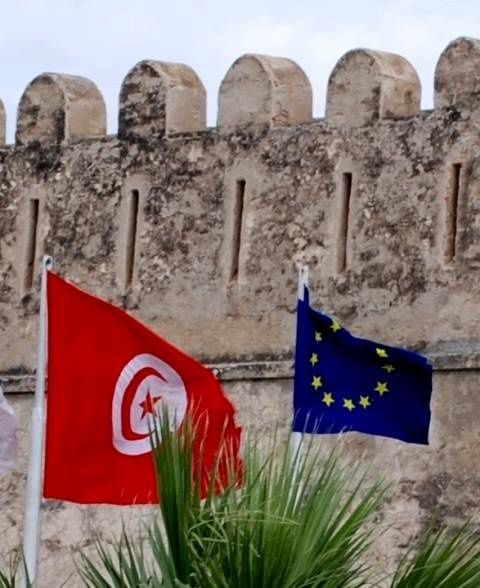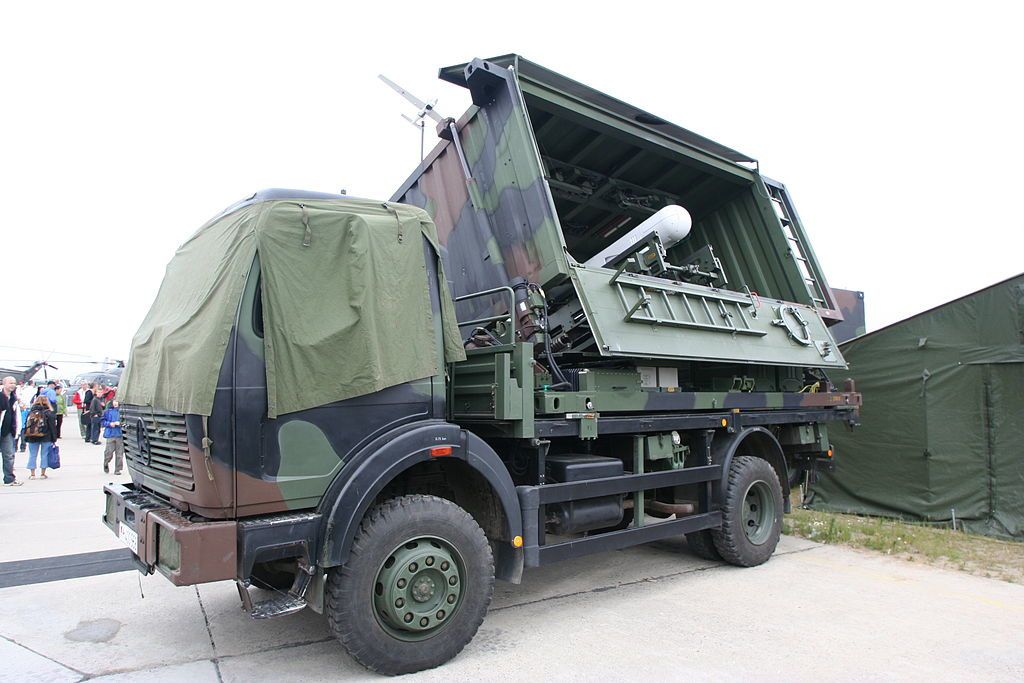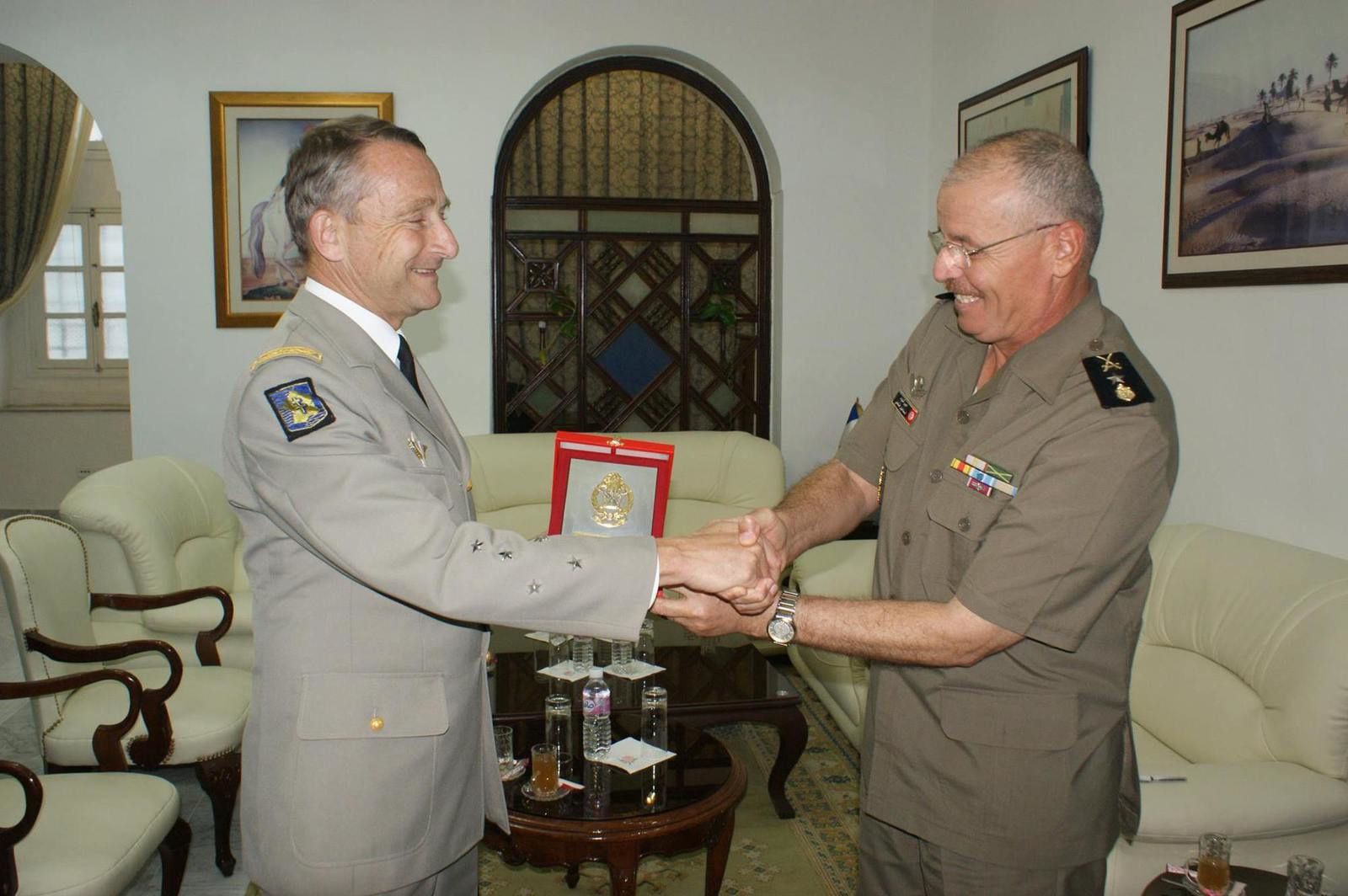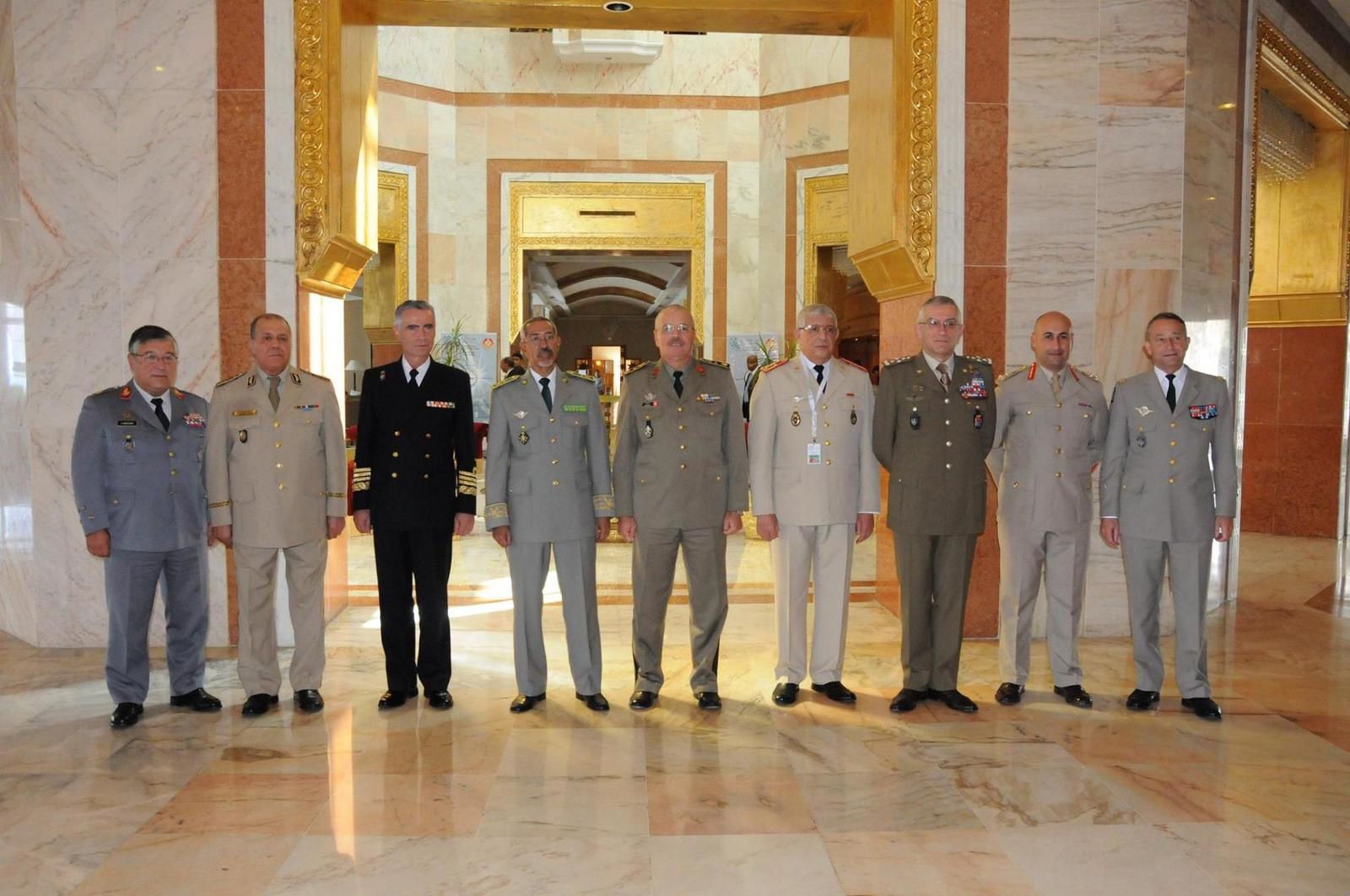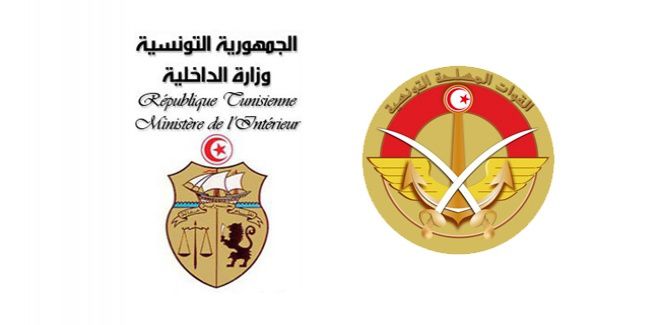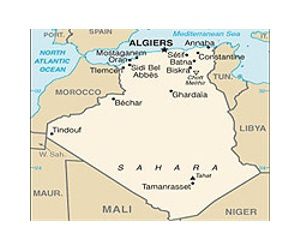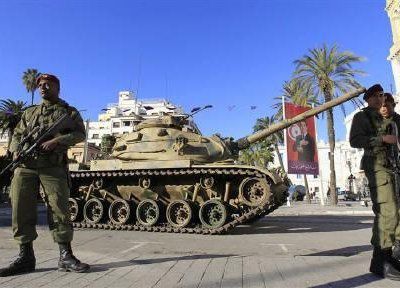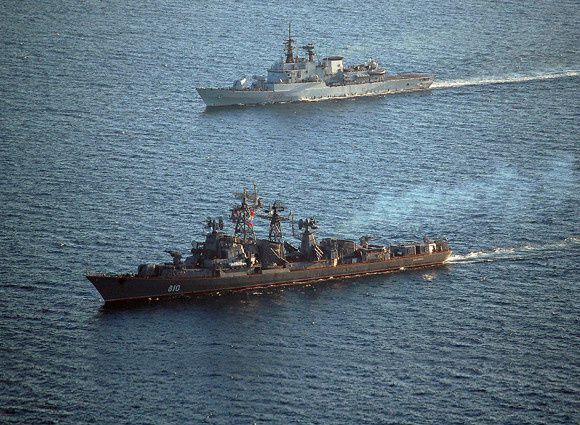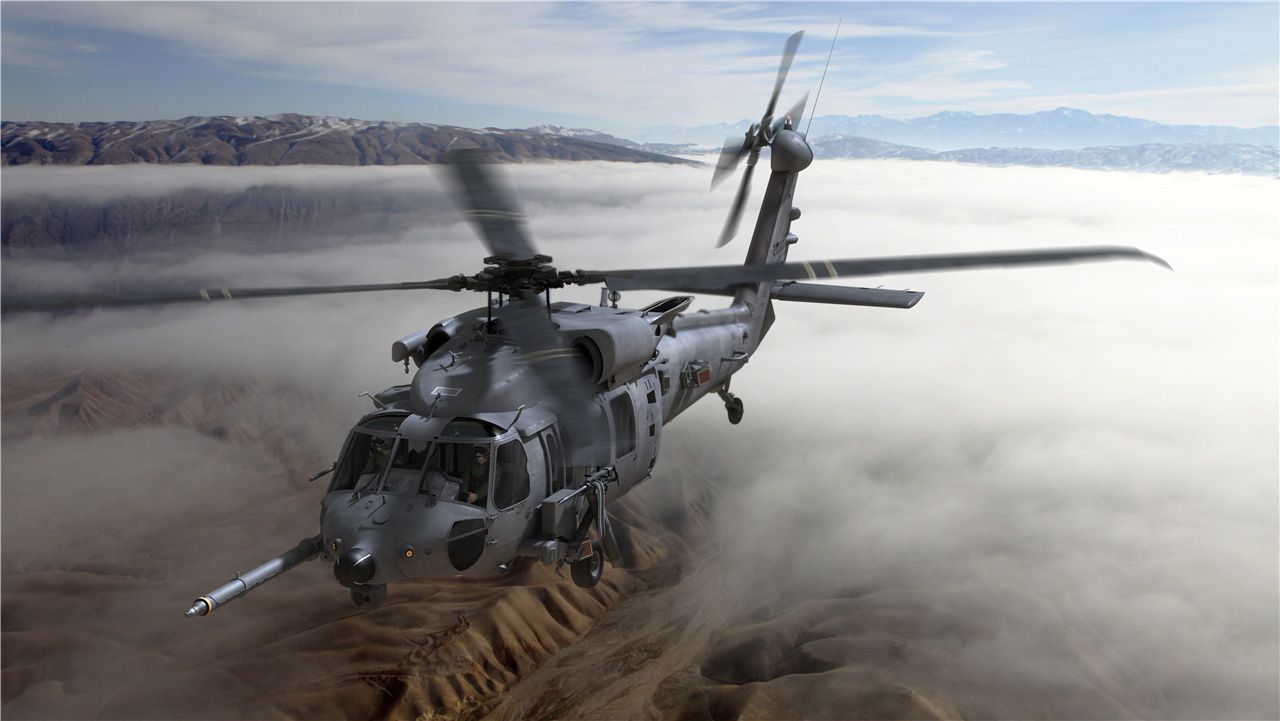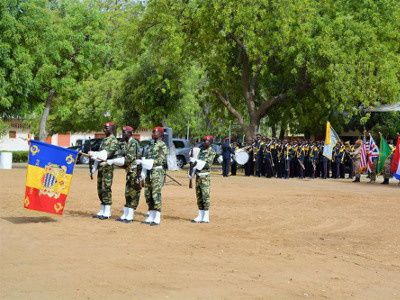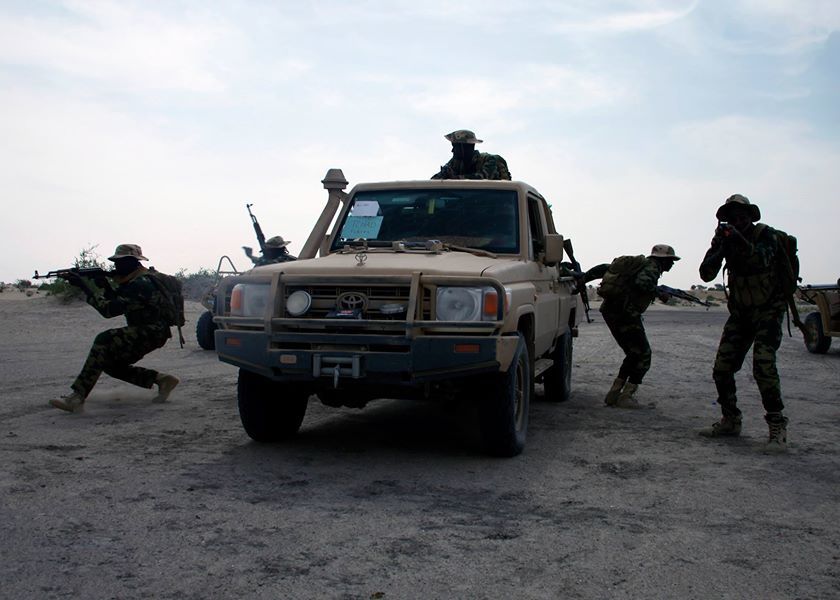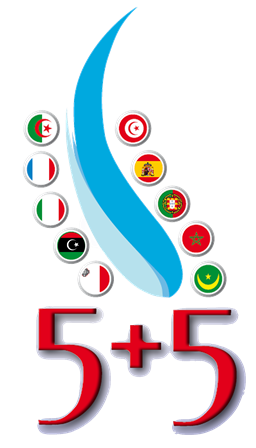Darna has become a colony of terror, and it is the first Islamic State enclave in North Africa. The conditions in Libya are perfect for the radical Islamists: a disintegrating state, a location that is strategically well situated and home to the largest oil reserves on the continent. Should Islamic State (IS) manage to establish control over a significant portion of Libya, it could trigger the destabilization of the entire Arab world.
The IS puts down roots wherever chaos reigns, where governments are weakest and where disillusionment over the Arab Spring is deepest. In recent weeks, terror groups that had thus far operated locally have quickly begun siding with the extremists from IS.
In September, it was the Algerian group Soldiers of the Caliphate that threw in its lot with Islamic State. As though following a script, the group immediately beheaded a French mountaineer and uploaded the video to the Internet. In October, the "caliphate" was proclaimed in Darna. And last week, the strongest Egyptian terrorist group likewise announced its affiliation with IS.
The Latest Label of Horror
Several inconsequential groups have also pledged loyalty to Islamic State, while others have gone so far as to announce their support for the group, such as Boko Haram in Nigeria, Abu Sayyaf in the Philippines and the Taliban in Pakistan. All of them are seeking to benefit from the attraction and the brutal reputation of the Islamic State, in addition to the weapons, money and fighters that are easier to assemble using the latest label of horror.
Many such groups once joined al-Qaida for similar reasons, but Osama bin Laden's forces have long-since become overshadowed by IS. Whereas al-Qaida was an ideological establishment with far-flung franchises, Islamic State seeks to exert control over entire regions, led by Abu Bakr al-Baghdadi, the so-called "caliph."
Now, Tunisia of all places, the birthplace of the Arab Spring, has supplied the largest number of foreign jihadists to Islamic State. Many in the country are deeply disappointed with the new freedoms they now possess, and Islamists have also long been able to recruit new followers in Tunisia. In Egypt, where a new military dictatorship took control following the revolution, radical terror organizations have sprouted. And in Libya, fighting among militia groups has resulted in a complete collapse of state order.
Moreover, Islamists were long persecuted in these countries prior to the deposition of their secular rulers. The result was that for decades, jihadists under the thumb of Hosni Mubarak, Zine el-Abidine Ben Ali and Moammar Gadhafi left their home countries. But now, a few old jihadists and many who recently joined IS in Syria are coming back, and they have thrown their support behind Islamic State.
LIBYA: WHERE THE STATE HAS DISAPPEARED
Darna has long been a radical stronghold, having produced the greatest number of foreign suicide attackers from one single city in Iraq after 2004. Oppression by Gadhafi's security forces made it easy for Islamists to sell the jihad as an alternative to living under a dictatorship and the regime was happy to let them go. Every Islamist who left to fight the Russians or the Americans was one less danger back home.
After Gadhafi was toppled in 2011, many rebels headed for Syria to fight against Bashar Assad. At the same time, the revolution gave birth to several militia groups, not all of which were radical but some leaned Islamist. Extremists subsequently found a foothold in eastern Libya and perpetrated a series of bloody attacks against the police and the army, leading the state to pull back. The extremists remained. Today, Darna is ruled by several militia groups, the most important of which is the Islamic Youth Shura Council, an organization founded in the spring after splintering off from the Libyan terror group Ansar al-Sharia. In Darna, the leaders of Ansar al-Sharia have joined forces with Islamic State while in Benghazi they have not.
Initially, IS emerged in Libya in the form of a group of fighters returning from Syria. The so-called al-Battar Brigade brought Darna under its control by murdering politicians, judges and attorneys -- but also by killing commanders of other militias. Then, in September, an "emir" sent by Islamic State arrived in Darna, a previously little-known Yemenite named Mohammed Abdullah. On Oct. 5, the first meeting was held between the men from the Islamic State and Shura Council leaders, during which they announced their alliance and the founding of Islamic State's "Barka Province." At the end of October, hundreds of citizens publically proclaimed their loyalty to the "caliph."
Afterwards, an activist named Mohamed Batoha asked the predominantly foreign extremists what business they had being in Darna. Two days later, he was shot to death by gunmen in a passing vehicle, just as dozens of other critics had been before him.
'Hardly Different from Syria or Iraq'
"The fight against Gadhafi began in Benghazi on Feb. 17, 2011. But it is here where it will be determined whether the fight against the Islamists will escalate into a conflagration across all of North Africa," says a young activist who asked to remain anonymous. He is one of the few who has the courage to report from Darna. He too has been shot at by the Islamists, and he only barely escaped with his life. Since then, he has been trying to leave, but the extremists have set up roadblocks all around the city. "Eastern Libya is hardly any different from Syria or Iraq," he says.
The militias hunt down everybody who voices criticism, be it even just a comment posted on Facebook. Just last Tuesday, three young anti-IS activists were beheaded on camera in Darna. Suspected criminals are lashed. A murderer was executed in the local football stadium. Islamists are treated no better. The leader of Ansar al-Sharia in Benghazi has been missing ever since he refused to join the "caliphate" -- in all likelihood he was killed. A further militia leader has applied for asylum in Turkey.
The militias operate four camps on the outskirts of the city where they train several hundred foreigners for the fight in Syria. But ever since the Libyan army, under the leadership of General Khalifa Haftar, took over large sections of Benghazi, which had been controlled by Islamists until then, the jihadists have focused their efforts here. Some have even returned from Syria to provide support. They are thought to have established weapons depots in the forested mountains above Darna and to have stored short-range missiles in a warehouse belonging to a textile factory.
Last week, Darna was bombarded for the first time by the air force under General Haftar's control, which is supported by Egypt and the United Arab Emirates. But such strikes will hardly eliminate the Islamists. More plausible is that the bombings will increase the danger that militias, operating independently thus far, will join forces to fight the general's troops -- and will become part of the Islamic State alliance. Last week provided a look at the dangers facing the country. Islamists detonated a series of bombs at state facilities and at the embassies of Egypt and the United Arab Emirates in Tripoli.
Since summer, the Libyan capital has been under the control of an Islamist alliance calling itself "Fajr Libya" -- Dawn Libya. The group doesn't belong to Islamic State, but the route to the "caliphate" nevertheless runs through Tripoli. In August, Fajr Libya took control of Mitiga Airport in Tripoli, leaving the terminal in ruins and destroyed jets at the gates. A plastic tarp hanging over the entrance reads "International Airport Tripoli." And Mitiga is an international airport, even if there is essentially only a single destination: the "caliphate."
Flights originating in Mitiga are not allowed to land in many cities, but there are several flights weekly to Istanbul and Casablanca. "Libya is the hub for Islamists from Europe and North Africa," says a Libyan activist who escaped to Tunis. The Jihad route leads from Tunisia via Tripoli into Turkey and on to Syria. Thousands have followed the path into Syria, and only a few have returned.
TUNISIA: THE COUNTRY OF JIHADISTS
Mohammed Soussi, from Tunis, is one of those who traveled the Jihad route. Soussi, 27, holds a degree in economic science and had never been particularly devout. The soldier, who had served his country for two years, recently called his parents. But he placed his call from Turkey. "I am fighting for the Islamic State," he said, "for the liberation of Palestine and against Bashar Assad."
Taoufik Soussi, a 63-year-old retired military officer, has reconstructed the path his son took and he now knows where everything got started: in the Elmanar Mosque not far from the technical university in Tunis. Mohammed met an imam there who told him about the Islamic State and who ultimately paid his fare for a collective taxi, which took him to the Libyan border. Fighters with an Islamist militia from Sabratha were waiting on the other side, part of the Ansar al-Sharia network. Presumably, they brought Mohammed to Sabratha, as they had many other Tunisians, and spent several weeks training him for the fight in Syria. They then took him to Mitiga Airport.
According to government figures, 2,400 Tunisians have traveled to Syria, though other estimates place the number of people from Tunisia fighting for the al-Nusra Front or IS at 3,000. The Interior Ministry claims that a further 8,000 men have been prevented from traveling to Syria. Some potential jihadists were identified because they only possessed a one-way ticket to Istanbul while others were arrested at the Libyan border. Some 400 men have returned from Syria, according to government statistics, with most of them now in prison.
Tunisia is the country where the Arab Spring got its start. And while dictators or chaos have followed uprisings in Egypt, Syria and Libya, Tunisia has since held two parliamentary elections. Just recently, there was a peaceful transfer of power from the moderate Islamist party Ennahda to the secular party Nidaa Tounes. On average, the Tunisian population of 11 million is better educated than the people in almost any other county in the region. Why, then, do so many people from this country join the jihad?
Horrific Inventions
The imam who recruited Mohammed Soussi -- and who wishes to remain anonymous -- says: "The Islamic State is our promised land," a state "in which Muslims have wrested back their dignity." Stories about IS fighters killing fellow Muslims and raping women, he says, are merely horrific inventions of the Western media.
Many Tunisians are prepared to believe him. For them, the fight against Assad -- or at least the struggle they see as being that -- is merely a continuation of their own, incomplete revolution. The conditions that moved the street vendor Mohamed Bouazizi to light himself on fire -- the event on Dec. 17, 2010 which triggered the Tunisian revolt -- are still present. Many have yet to benefit from the country's newfound freedoms and the police are just as brutal as they have always been. Furthermore, one-third of all men with a university degree are unemployed and those lucky enough to have a job hardly earn enough to make ends meet. They are confronted with a choice: wait years for a job in Tunisia, jump on a rickety ship bound for Europe or join the jihad in Syria.
"Islamic State propaganda promises a fight for liberation similar to many Latin American movements in the 1970s," says Ahmed Naifar, who teaches religious studies at Zitouna University in Tunis. He believes that frustrated young Tunisians see the trip to Syria as a kind of revolt against corruption, brutality and daily indignities. It is a mood that is prevalent in many countries that experienced Arab Spring revolts.
Indeed, within the "caliphate" there are even proper Tunisian exile communities. They update their friends back home using Facebook and Twitter and they paint a picture of the good life, complete with their own homes, wives and monthly incomes. That is what attracts many to join, not the fighting, which many Tunisians have no use for. Indeed, the "caliphate" has become so popular that its leaders can choose who they would like to accept. They post "help-wanted" ads on Facebook for oil engineers, mechanics and translators.
Computer expert Hamsa Bin Ekbel, for example, was supposed to organize workshops in Syria for European jihadists. Most of them hardly speak any Arabic, but they and the videos they appear in are vital for Islamic State propaganda. That kind of work is also about the only thing Ekbel had to offer: He is paralyzed from the waist down and sits in a wheelchair. Hamsa was looking for recognition, says his brother Mohammed Bin Ekbel, and he was welcomed when he arrived in Syria.
A Desire to Build Up the 'Caliphate'
But his enthusiasm for Islamic State didn't last long. And after the propaganda success of recruiting the "wheelchair jihad," Hamsa Bin Ekbel quickly became a nuisance. The problems began with the fact that he needed three helpers, given that the "caliphate" isn't exactly amenable to wheelchairs. He edited a few videos before his Sudanese commander suggested it might be best if he returned home.
After just a few weeks, he was back home in Tunis. Hamsa Bin Ekbel only agreed to a short interview out of his fear that he will be arrested, but his desire to help build up the "caliphate" remains. "The society that is developing there is more just than capitalism and democracy," he says. "In Raqqa, there is a consumer protection authority which monitors hygiene in the slaughter houses, garbage is collected and buses are on time."
Hamsa Bin Ekbel was luckier than Mohammed Soussi, the young soldier.
This June, eight months after his disappearance, Taoufik Soussi received a second phone call from Syria. "Your son is now a martyr. You can be proud of him," said the man on the other end of the line. Mohammed, the caller said, was injured by an al-Nusra Front rocket attack and taken to a hospital in Turkey, where he died. He was buried in Syria.
Soussi's mourning father and Hamsa Bin Ekbel's brother have now founded RATTA, the Rescue Association of Tunisians Trapped Abroad, which now attends to around 150 families. They don't have sufficient money for an office so they meet in a café to watch the most recent IS videos. Mohammed Bin Ekbel clicks on a YouTube video from Kobani, where many Tunisians are fighting on behalf of Islamic State. He recognizes one of the fighters from other films; his family has asked RATTA for help bringing their son home. "No chance," Ekbel says quietly.
A Shot to the Head
But they hope to at least bring home those who have become disillusioned. Once they arrive in Syria, many realize that IS spends more time fighting against other rebel groups than they do against the regime. Some 300 fighters interested in returning home have turned themselves in to Syrian troops and have been arrested, Ekbel says.
The two activists blame the Ennahda government for having done too little to stop the jihad tourism. The moderate Islamist party seemed to believe they could control and moderate the radicals, but instead, they unwittingly strengthened the extremists, with their imams taking control of over 1,100 mosques that had previously been run by the secular regime.
Even in the 1980s, Tunisians joined the jihad in Afghanistan. The Tunisian Abu Ayyat, for example, was a comrade of Osama bin Laden's before being arrested and deported in 2003, only to be released after the revolution whereupon he founded Ansar al-Sharia. In 2012, the group attacked the US Embassy in Tunisia before murdering two opposition politicians in 2013. Only after that did the Tunisian government declare the group a terrorist organization. By then, however, the group had already send hundreds, if not thousands, of men to Syria.
In March 2012, the government banned men under 35 from traveling to Turkey and Syria and security officials stepped up efforts to combat radicals. Now, fewer men are making the trip to Syria, leading officials to focus their attentions on the radicalized returnees. Those suspected of having participated in the fighting are imprisoned. But it will be difficult to keep tabs on all jihadists. And what happens when men like Abu Jihad return?
The name refers to a Tunisian man of around 30 who is a member of the notorious IS "military police" -- and can be seen in one video killing several prisoners with a shot to the head.
EGYPT: PROTEST AGAINST OPPRESSION
Since last month, the "Sinai Province" has also been part of the "caliphate." There, Egypt's most radical terror group proclaimed its loyalty to Islamic State: Ansar Bait al-Maqdis, whose name essentially means "supporters of Jerusalem." For IS, the Sinai Peninsula is important both symbolically as well as strategically. Egypt is the most populous Arab country as well as being the historically the most important -- and Sinai borders on Israel, the Suez Canal, the Mediterranean Sea and the Red Sea, making it useful as a launch pad for terror attacks in Israel and Cairo and on Western tourists.
Ansar Bait al-Makdis also emerged out of the vacuum created by the collapse of the Mubarak regime and since the military putsch in July 2013, the group has carried out dozens of attacks killing hundreds of police officers and soldiers. For months, the group discussed a possible alignment with IS, with emissaries traveling back and forth. Mohammed Haydar Zammar is thought to be one of the IS leaders who has been negotiating with the Sinai terrorist group since the beginning of the year.
A naturalized German citizen of Syrian origin, Zammar belonged to the Hamburg cell of Mohammed Atta. Following the Sept. 11, 2001 attacks, Zammar was picked up by the CIA and taken to Syria, where Germany's foreign intelligence agency, the BND, participated in his interrogation. In early 2014, he was released in a prisoner exchange orchestrated by the Syrian rebel group Ahrar al Sham. "But days later, he simply disappeared," a negotiation leader told SPIEGEL. "He immediately went to the IS in Raqqa. He had likely planned it beforehand." Zammar is thought to have organized money transfers to Sinai and he is presumed to be in the region as well, say sources close to him. Were that true, it would be an indication that IS directly finances and controls local groups.
Conditions in the Sinai are perfect for Islamic State: It is bitterly poor, largely lawless, a hub of drug, weapons and human trafficking, and it is populated by Bedouins, who oppose the government in Cairo. But moderate Islamists and regime critics across Egypt make for attractive IS targets: They are brutally oppressed by the Egyptian military and many of them are in prison.
Or they are disillusioned men like Ahmed al-Darawi. A 36-year-old former policeman and father of two, he supported the Egyptian revolution. In 2012, he was even a candidate in the elections as a convinced democrat, full of hope for a better future.
But disappointed by the revolt and by the return of the military regime, Darawi radicalized and flew to Turkey last year before joining a rebel group in Syria that later pledged loyalty to Islamic State. Not long later, he blew himself up in Iraq -- a suicide bomber from the Arab Spring.


